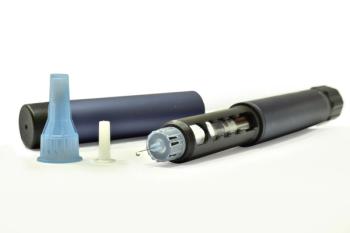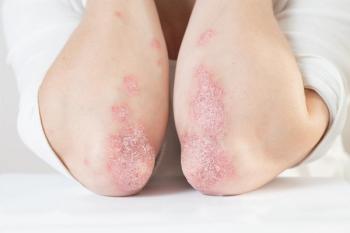
- Drug Topics June 2021
- Volume 165
- Issue 6
Preventing Autoimmune Disease Flare-ups During the Summer
Exposure to heat and sun can worsen symptoms for certain conditions.
Pharmacists can play an important role in educating patients with certain autoimmune diseases about strategies to prevent a temporary worsening of symptoms in hot or humid weather.
More than 80 diseases occur as a result of the immune system attacking the body’s own organs,1 and ongoing research shows that temperature changes and sunlight can increase flares or flare-ups that exacerbate some of these conditions.
As temperatures rise during the summer months and more individuals participate in outdoor activities, pharmacists can educate patients with multiple sclerosis (MS), lupus, psoriasis, and dermatomyositis about strategies to prevent disease.
Symptom Management
Multiple sclerosis
Approximately 60% to 80% of patients with MS experience Uhthoff phenomenon (named after the physician who discovered it), which is the temporary worsening of neurological symptoms when the body gets overheated during hot or humid weather, exercise, or fever.2,3 These symptoms improve after cooling down, typically last less than 24 hours, and may include fatigue, weakness, balance issues, blurred vision, and memory and concentration issues.3,4 Sunbathing, taking very hot showers or baths, or using saunas and hot tubs can also cause these symptoms.2,3
Pharmacists can counsel patients to stay in air-conditioned environments during periods of extreme heat and humidity, drink cold fluids, and wear lightweight, loose, breathable clothing.2 Exercising in a cool pool (< 85 °F), choosing cooler times of the day (early morning or evening) for outdoor activities, and taking a cool bath or shower to lower core body temperature following activities in a hot environment can also prevent flare-ups.2
In addition, use of cooling products such as vests, neck wraps, or bandanas during exercise or outdoor activities can manage symptoms. The National Multiple Sclerosis Society has compiled a list of approved cooling product vendors and discount codes2,5,6 and may be able to provide financial assistance if the patient’s insurance does not cover the cooling equipment.6
Lupus
Approximately 50% of patients with lupus experience photosensitivity through exposure to ultraviolet (UV) rays from sunlight or artificial light, which can cause flares such as swollen joints, fatigue, rashes (eg, characteristic “butterfly rash”), mouth and nose sores or ulcers, and leg swelling.7-9 Pharmacists should also counsel patients about some of the medications used for lupus treatment, such as nonsteroidal anti-inflammatory drugs and hydroxychloroquine, that can cause sun sensitivity.8
Therefore, it is important to educate patients to apply sunscreen with an SPF of 30 or higher that provides broad-spectrum protection against both UV-A and UV-B rays and to wear tightly woven clothing that covers the skin, a wide-brimmed hat, and wraparound sunglasses, which all provide protection to help prevent lupus flare-ups from the sun.8
Additionally, fluorescent and halogen bulbs should be covered with light shields or glass to filter UV rays, and UV blocking shades can be used to cover windows.8
Data point: Approximately 50% of patients with lupus experience photosensitivity through exposure to ultraviolet rays from sunlight or artificial light.
Psoriasis and dermatomyositis
Warm weather, accompanied by more natural sunlight and humidity, can often improve psoriasis. However, skin injuries such as sunburn can trigger flares with symptoms that include raised plaques on the skin, itching, redness, swelling, stiffness, and joint pain.10 Patients should apply broad-spectrum, fragrance-free sunscreen made for sensitive skin to all areas of exposed skin, including the psoriasis plaques, to prevent sunburn. Heat and sweat can also trigger flares, so patients should try to stay cool using air conditioning or a fan. Because air conditioning can dry out the skin, recommend that they use a moisturizer.
Dermatomyositis is a rare autoimmune disease that causes skin changes and muscle weakness. Even brief sun exposure can cause flares, which include a distinctive reddish-purple rash, edema surrounding the eyes, and muscle weakness. Therefore, sunscreen, sunglasses, and protective clothing are extremely important for patients with dermatomyositis.11
References
- Autoimmune diseases. National Institute of Allergy and Infectious Diseases. Updated May 2, 2017. Accessed April 17, 2021.
https://www.niaid.nih.gov/diseases-conditions/autoimmune-diseases - Heat & temperature sensitivity. National Multiple Sclerosis Society. Accessed April 17, 2021.
https://www.nationalmssociety.org/Living-Well-With-MS/Diet-Exercise-Healthy-Behaviors/Heat-Temperature-Sensitivity - Panginikkod S, Rayi A, Cabrero FR, Rukmangadachar LA. Uhthoff phenomenon. In: StatPearls (Internet).StatPearls Publishing; 2021. Accessed April 17, 2021.
https://www.ncbi.nlm.nih.gov/books/NBK470244/ - Uhland V. Beating the heat. Momentum. Summer 2014. Accessed April 17, 2021.
https://momentummagazineonline.com/beating-heat/ - Stella AB, Pasquin F, Morrison SA, et al. Effects of a cooling vest with sham condition on walking capacity in heat-sensitive people with multiple sclerosis. Eur J Appl Physiol. 2020;120(11):2467-2476. doi:10.1007/s00421-020-04478-3
- Cooling equipment information & national vendor list (.pdf). National Multiple Sclerosis Society. Updated February 2021. Accessed April 17, 2021.
https://www.nationalmssociety.org/Programs-and-Services/Resources/Cooling-Equipment-Information?page=1&orderby=3&order=asc - What is a lupus flare? Lupus Foundation of America. Updated July 29, 2020. Accessed April 17, 2021.
https://www.lupus.org/resources/what-is-a-flare - UV exposure: what you need to know. Lupus Foundation of America. Accessed April 17, 2021.
https://www.lupus.org/resources/uv-exposure-what-you-need-to-know - Lupus-specific skin disease and skin problems. Johns Hopkins Lupus Center. Accessed April 17, 2021.
https://www.hopkinslupus.org/lupus-info/lupus-affects-body/skin-lupus/ - Taking care of your skin in summer. National Psoriasis Foundation. July 1, 2020. Accessed April 17, 2021.
https://www.psoriasis.org/advance/taking-care-of-your-skin-in-summer/ - Sun protection. The Myositis Association. Accessed April 17, 2021.
https://www.myositis.org/about-myositis/treatment-disease-management/complementary-and-self-care-therapies/sun-protection/ .
Articles in this issue
over 4 years ago
Pharmacists Can Help Patients as Signs of Normalcy Returnover 4 years ago
New Nonstimulant Medication Is Approved for ADHD in Childrenover 4 years ago
Social Media Incites the COVID-19 Misinformation Epidemicover 4 years ago
A Guide to HIPAA Compliance in the Pharmacyover 4 years ago
Migraine Care: Prevention, Treatment, and Medication Managementover 4 years ago
Enhancing Medication Adherence With Smart PackagingNewsletter
Pharmacy practice is always changing. Stay ahead of the curve with the Drug Topics newsletter and get the latest drug information, industry trends, and patient care tips.























